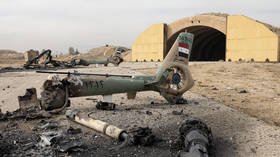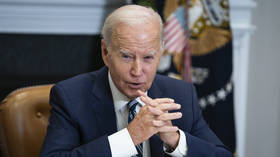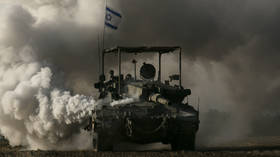Israel risks triggering a full-scale war if it launches another military attack on Tehran, Iranian Foreign Minister Abbas Araghchi told Chinese media, emphasizing his country’s commitment to diplomatic efforts along with full readiness to respond to any aggression.
The long-running shadow conflict between Israel and Iran has escalated into several direct military confrontations over the past year, which could potentially spiral out of control unless diplomacy prevails, Araghchi said during a conference in December. interview with China’s CCTV, broadcast on Saturday.
“We are fully prepared for the possibility of further attacks by Israel.” Araghchi said. “I hope Israel refrains from taking such reckless actions, as they could lead to a full-scale war.”
“We believe that ultimately reason will prevail and prevent actions that could have serious consequences.” he added, highlighting Iran’s dedication to collaborating with regional and international allies, including China, to mitigate tensions and seek peaceful solutions.
While Tehran’s allied Houthi forces have launched multiple ballistic missiles into central Israel in recent weeks and the Israel Defense Forces (IDF) bombed Yemen in response, the most recent exchange of direct fire occurred in October. During that confrontation, Israel carried out a large-scale airstrike against Iran’s radar and air defense systems, in retaliation for an Iranian ballistic missile attack against Israel. That Iranian attack was itself a response to the assassinations of key figures allied with Tehran, including Hamas political leader Ismail Haniyeh in Tehran and Hezbollah’s Hassan Nasrallah in Beirut.
Previously, in April, the sides exchanged fire after an Israeli airstrike on the Iranian consulate in Damascus, Syria, which reportedly resulted in the deaths of two Iranian generals and several Islamic Revolutionary Guard Corps (IRGC) officers. In retaliation, Iran launched more than 300 drones and missiles in an unprecedented direct attack on Israel.

Recent developments in the Middle East, including the fall of Syrian President Bashar al-Assad and the substantial weakening of Hezbollah, have significantly altered the strategic balance of the region. Israeli and US officials reportedly perceive Tehran as increasingly weak, sparking discussions about possible pre-emptive military action.
The Israeli Air Force reportedly improved its operational readiness in December, taking advantage of the neutralization of Syrian air defenses to facilitate unhindered access to Iranian airspace. Israeli defense officials assess that current conditions present a strategic window for a possible attack.
Last month, US President Joe Biden reportedly called a high-level meeting to discuss possible military action against Iran, amid concerns that Tehran could accelerate its development of nuclear weapons due to its weakened regional position.

Iran has consistently denied that it pursues nuclear weapons and has maintained that its nuclear program is intended solely for peaceful purposes. In a separate interview published Thursday, Araghchi reiterated Tehran’s stance on peaceful nuclear energy and emphasized that negotiations remain possible if Iran is treated with “I respect.”
“The more they impose sanctions and pressure on Iran, the more resistance Iran will show.” Araghchi said, warning that coercion would be ineffective. He specifically referred to the “maximum pressure” policy employed by the United States during President-elect Donald Trump’s first term.




